Through balance and intuition, Tommy Lei finds where he belongs
Behind the life of an interior stylist and modern lifestyle creative. 10080-lg-sunrise, 10065-sm-snow, 10058-sm-snow, 10068-md-carbon, 10061-md-sedona
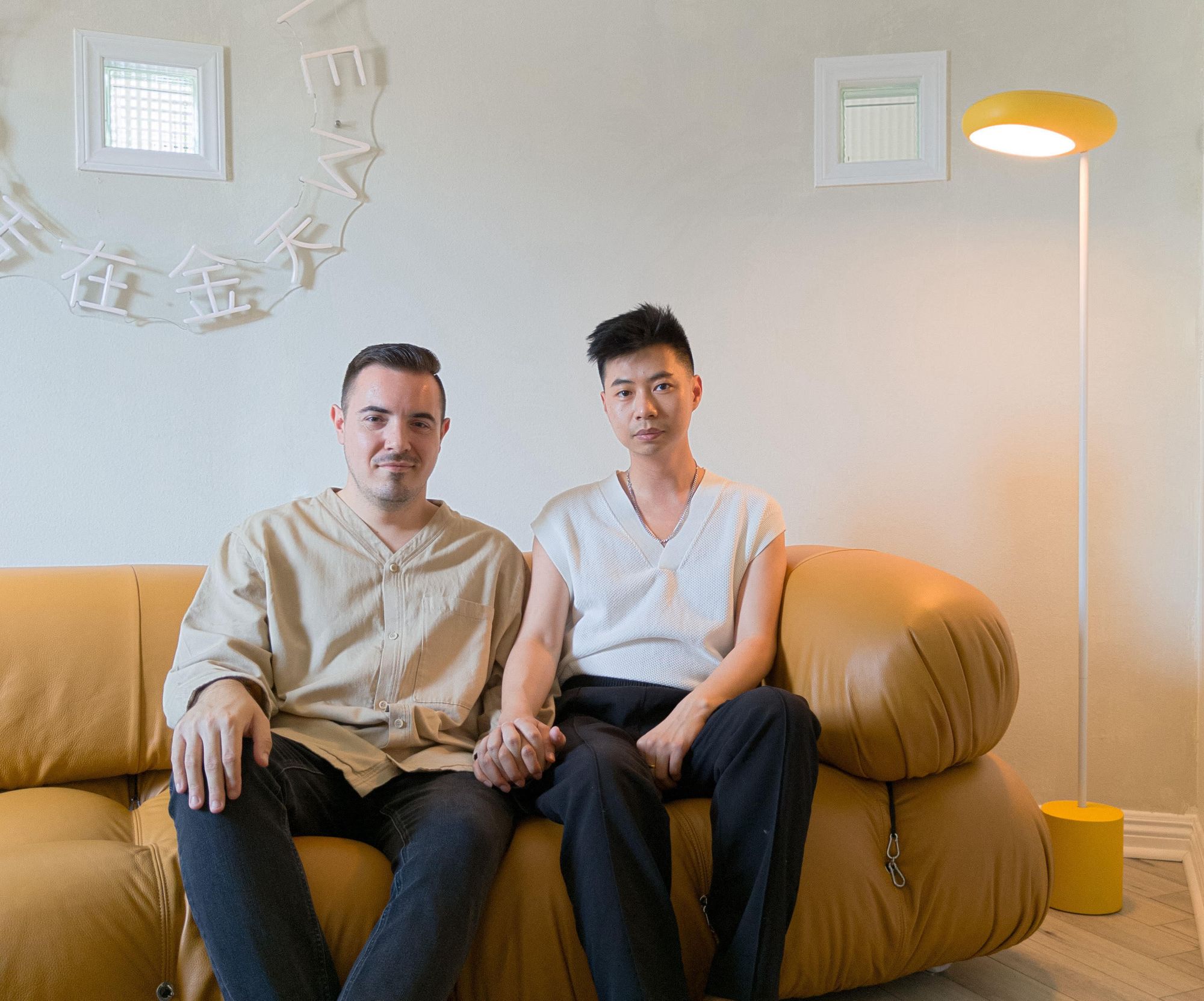
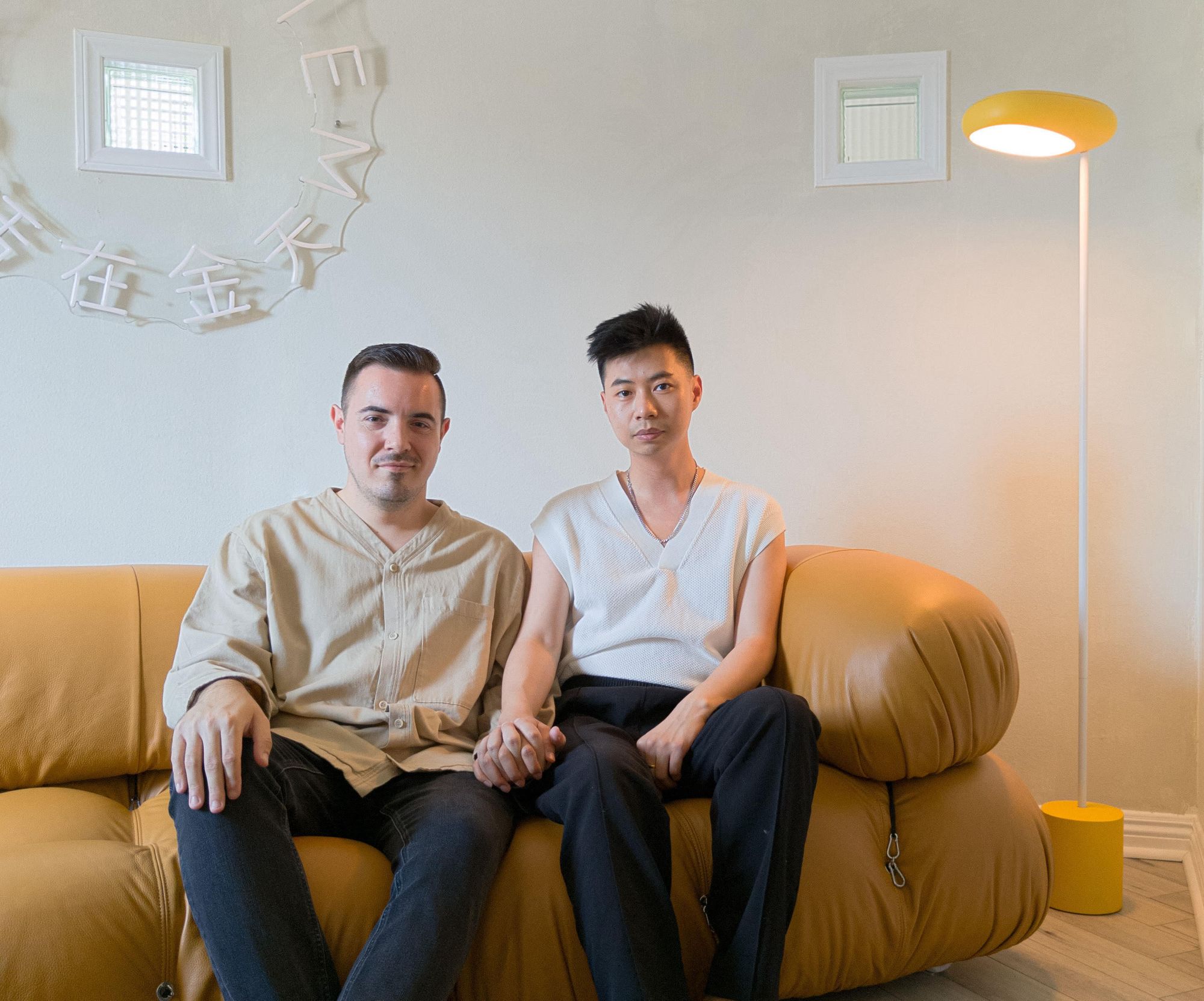
Welcome to Community Spotlight where we bring you stories from designers, artists, and creators who inspire us. Here you’ll get a behind the scenes look at the creative lifestyles of some of our favorite people and the ways they’re living at home with Gantri.
Today we’re chatting with LA native and MYBELONGING founder, Tommy Lei. He takes us on a journey from his early days of discovering elements of art and design to starting his own lifestyle brand when burnout came knocking. We also take a deep dive into his interior design process and how finding your personal style is just a matter of letting go.
Q: First of all, we love your creative eye! Have you always been into the elements and principles of art and design?
A: I definitely didn’t come from an artistic background because my traditional Chinese family dictated a more practical, pragmatic approach to life. Growing up I wasn’t exposed to anything about the elements and principles of art and design or even anything creative until I picked up my first camera in high school. I really ran with that and was able to express myself in a way I hadn’t before but I still didn’t think of it as a potential profession. I think I speak for many Asian Americans when I say that a lot of us didn’t pursue a creative career but rather fell into one because our hearts eventually guided us in college or afterwards.
Q: At what point did you decide to focus on interior design as a career?
A: So the beautiful thing about Cornell is that while you have a selected major, they allow you to choose electives that interest you. My major was human development but I got to take some studio art and architectural classes, too. Having that hands-on experience into the world of design really showed me how much I loved it. I was exposed to Tadao Ando and Ron Arad and some of the great modern classics like Isamu Noguchi. I really let my intuition guide me and was able to find my path towards interior design as a career organically.
Q: It seems like you had so much support at Cornell University during that time. Can you talk about being involved in the LGBTQ+ community there?
A: Yes! In one word it was amazing. When I was going through high school I was in the closet and I was very afraid to express who I was. Having the opportunity at Cornell to participate in Gay Straight Alliance where I was Co-Facilitator for two years really helped broaden my experience into the community. I also got to help put together our biggest Gala (“Gay-la” – pun intended) called Filthy/Gorgeous where the proceeds went towards a homeless youth shelter in New York City. I also was in charge of doing the creative direction and layout for a queer zine on campus. All of that helped me become the person I am today and also let me contribute to my community for the first time.
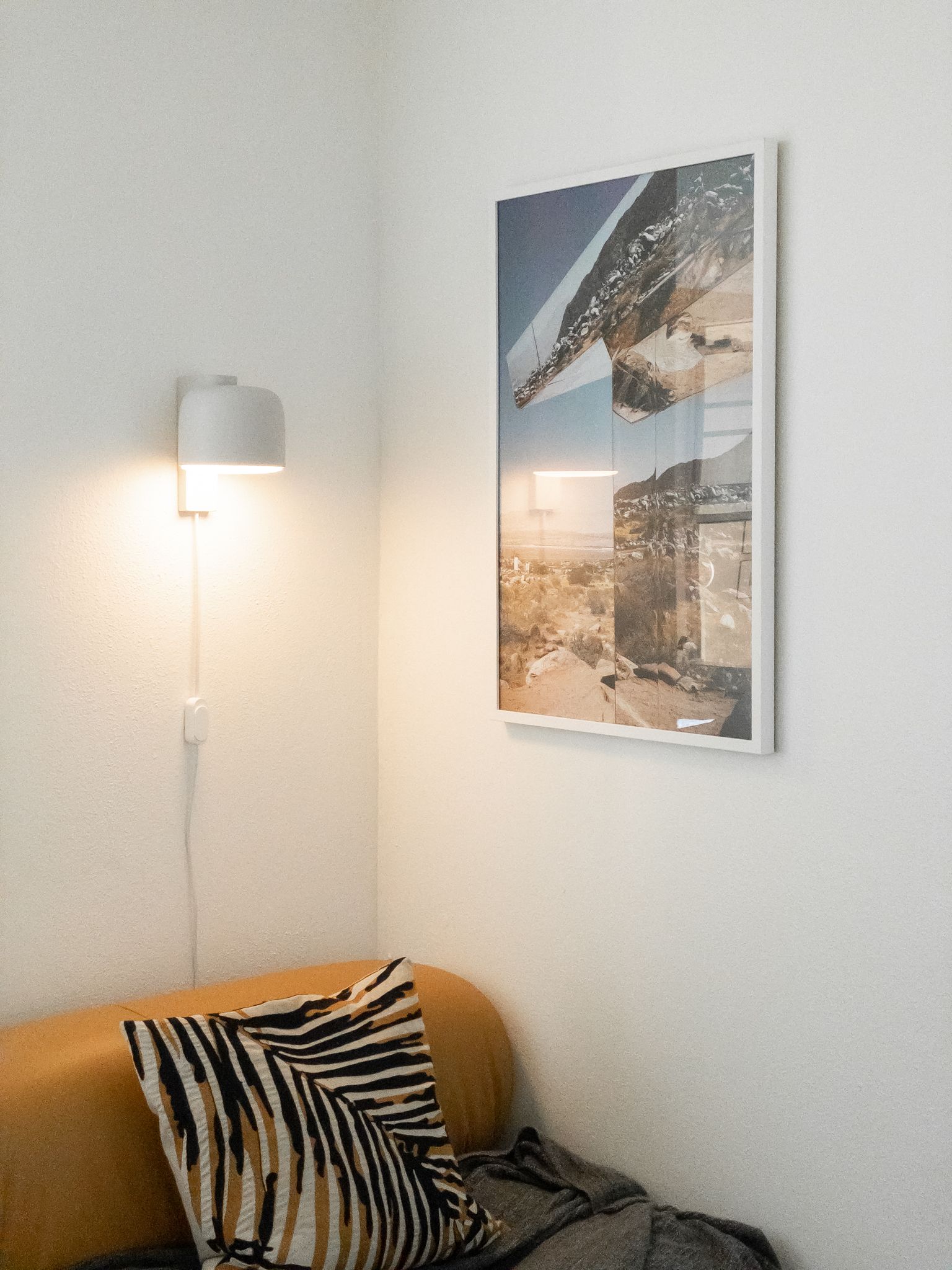
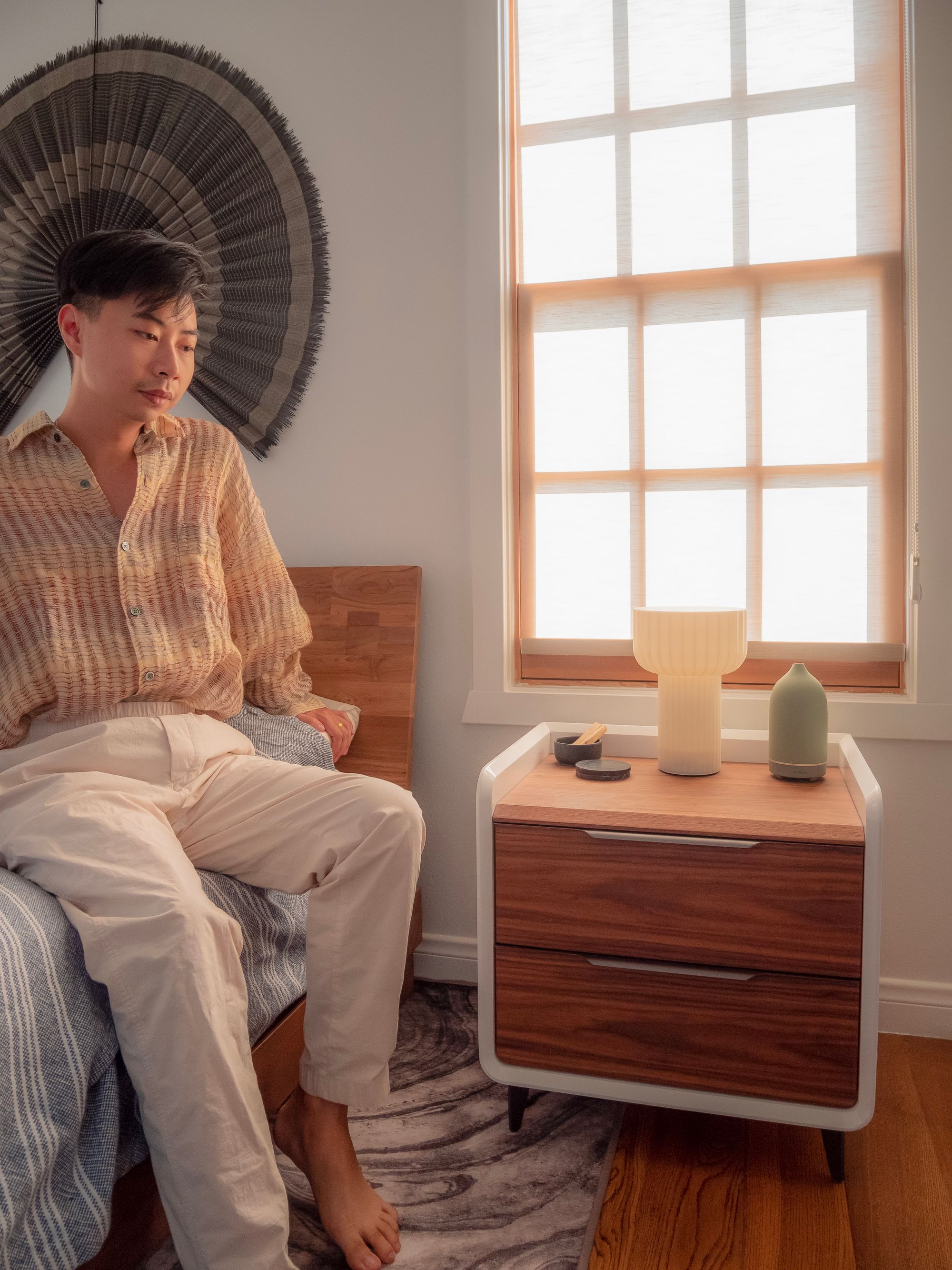
Q: Let’s talk about MYBELONGING! How did it come about?
A: Sure, MYBELONGING started as a saving grace for me from corporate burnout and stress. When I went back to LA, I was working in corporate PR and I hated it. Then I was fortunate to join Giant Robot and ended up bouncing around wearing many different hats. The brand was originally an outlet and distraction but as my audience grew, I knew I wanted it to be a full-fledged path for me. I don’t know if I’ll ever call it a career because I’m living in it, the content is my life – I can’t turn it off like a 9-5.
It’s really a love letter to all things modern from fashion to interiors to lifestyle. It started as a place to post about my personal style – kind of a digital blueprint of who I was at the time. I was breaking down what I was buying, things I was investing in. This is still the heart of it; it's just evolved into more aspects like interior design. I really consider it an extension of my life and who I am.
Q: It must be so surreal to start something as a personal project and end up with so many eyes on it. Any helpful advice for someone in the same position?
A: I had to take a leap of faith knowing there was no security net to fall back on. At the time, a fellow freelancer gave me the advice to give myself a year and within that year if I didn’t feel like I wasn’t hitting milestones to allow myself to put it on the back burner. I took that to heart and put it all out there. I think I was successful because I was okay with being intuitive and finding my way without a roadmap. Over the years, I’ve learned you have to embrace letting it go and letting it grow.
Q: What a thrilling ride! Everyone loves seeing your beautiful home on your Instagram and blog. Can you tell us about your interior design process?
A: The house is a 1920s build with a mid-century expansion so it definitely needed a lot of love and renovation to tie those two periods together. I knew I didn’t want my house to be full of entirely new furniture because I believe we have the power to be more sustainable and up-cycle. I love the idea of combining old and new pieces.
Function also dictated a lot in my interior design process. For instance, the tea room that we have now was going to be my office but that didn’t make sense for the space. I let the spirit of the room guide me to make it a meditation space. I wanted it to feel calming, reflect my travels to Morocco but also represent some elements of my Chinese heritage.
Thanks to the closed layout of the house I was able to let each space tell its own story and as you walk through the home, the stories kind of tie together my background, my travels, and where I’m at in life. Our interiors should reflect who we are interiorly.
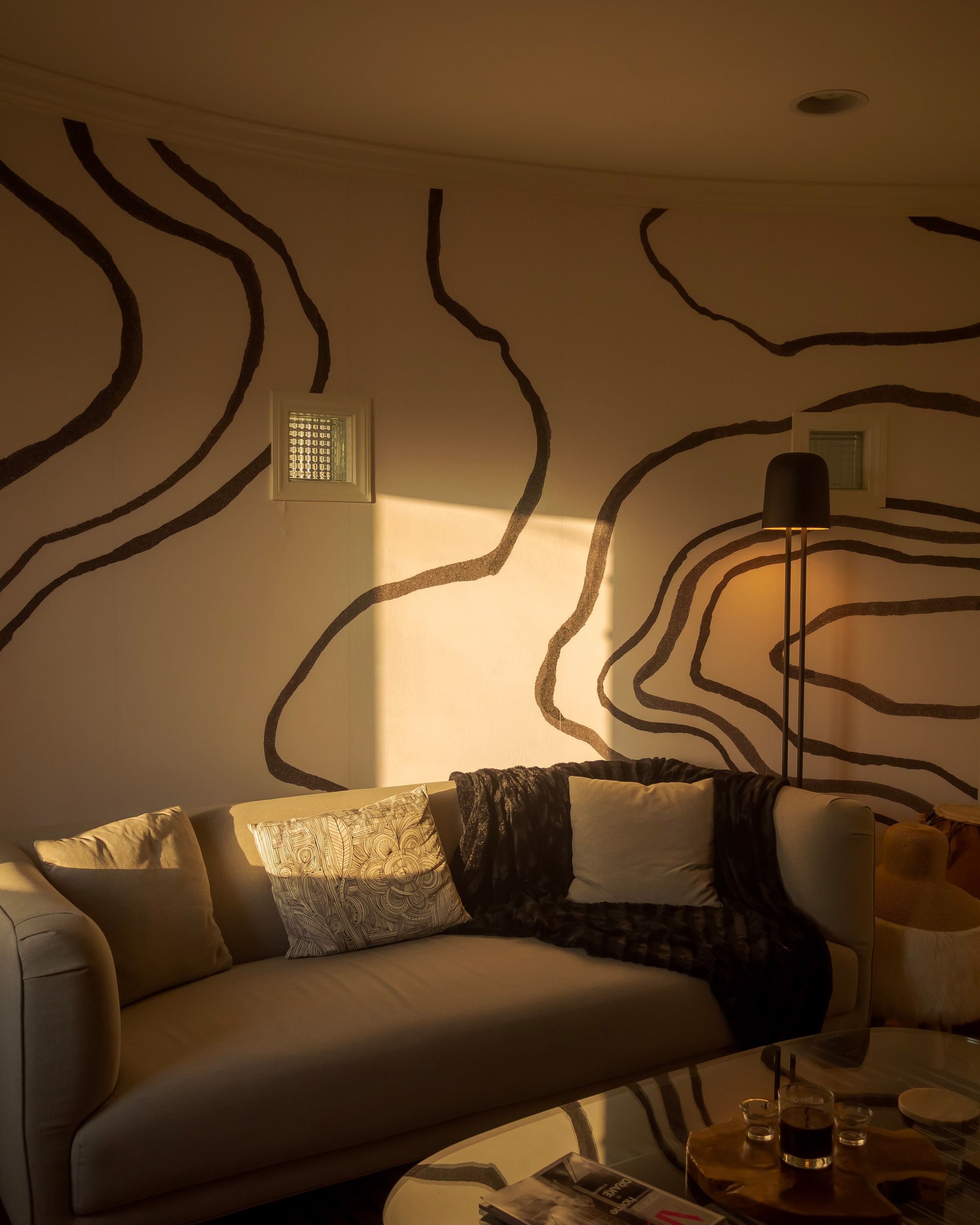
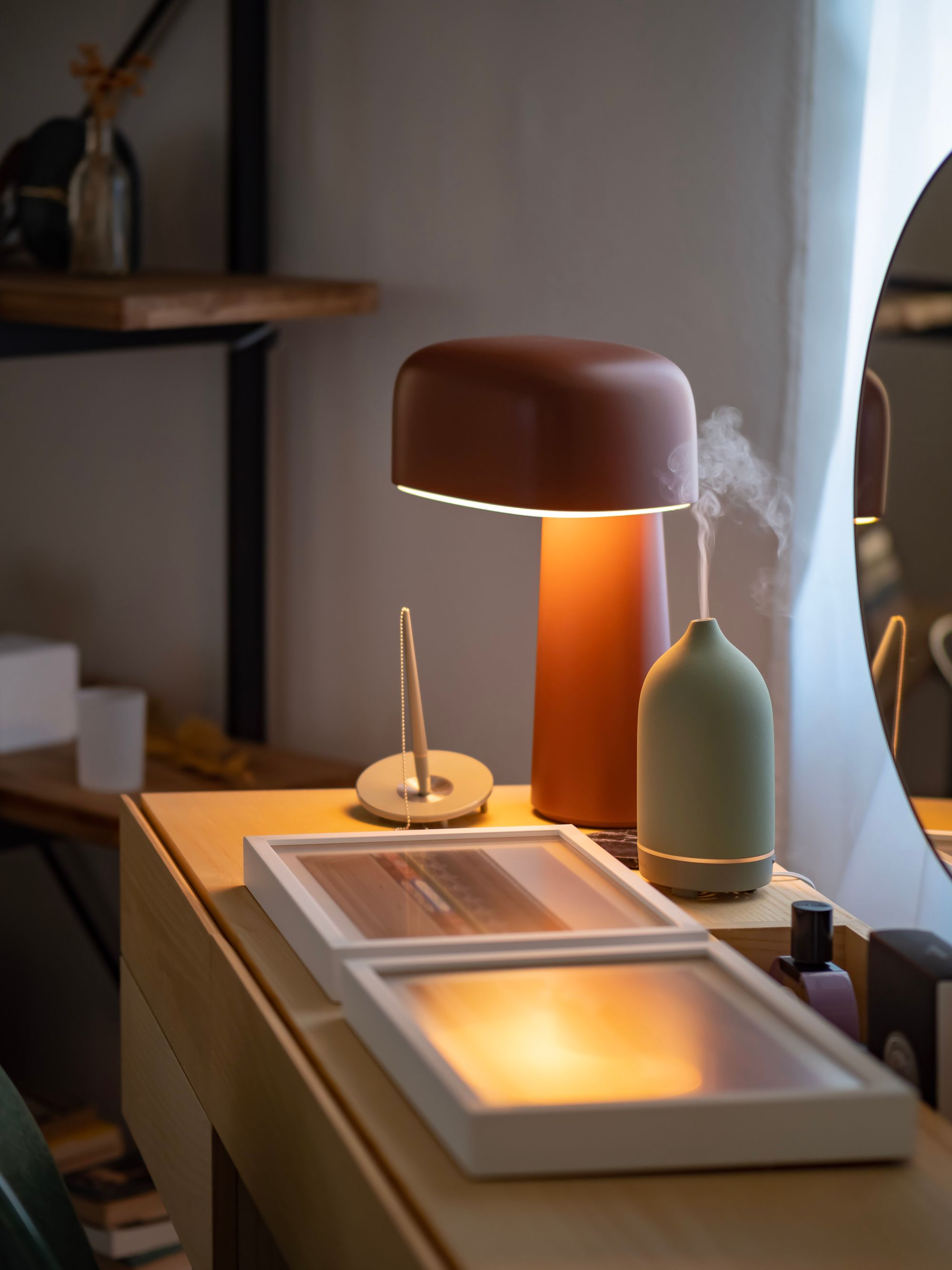
Q: Does your partner play a role in the process of interior design?
A: Yes, Braden has become somewhat of a mediator when it comes to bringing new pieces into the house. He reminds me if I bring something in, we must let something else go. It’s really important for us that each piece has its own place and purpose. I do feel bad sometimes that the house overwhelmingly reflects me but he really loves the space and doesn't have to lift a finger when it comes to the design work.
Q: When you and Braden decide to let a new piece in, what does that process look like from selection to styling?
A: I mean first and foremost, I love products that seamlessly marry form and function and I think that Gantri has mastered that. To use that as an example, when we chose our Gantri lights we wanted to ensure they were both providing optimal lighting throughout the space but also making a statement. I have a lot of Gantri lights in various rooms, and I try to have them balance harmoniously. I have the Palm Floor Light in my living room and love the pop of yellow color there. I turn it on around 5pm and it has a soft glow for the coziest vibe. My cat loves it. Every light has a time and place. Nothing feels excessive. Layered lighting is so important to create a comforting, intuitive feel.
Q: Are there things you won’t compromise on when it comes to furnishing your home?
A: Aside from good, functional lighting, I’d say never compromise on a good mattress. You spend so much time sleeping on it, it has to be a good one. Also, your sofa. Things you spend the most time on are worth investing in. You want them to last a long time – even a lifetime. I think about items as generational things. I ask myself, “Can I pass this on?” It’s so much easier on the planet that way.
Q: Can you tell us how to be more frugal when designing one's home?
A: It isn’t easy to answer how to be frugal because everything has their priorities. For me, I think accent pieces don’t necessarily need to last forever, you’ll probably want to switch them out. I also think you can find quality pieces at a lower price. I’ve definitely bought things from IKEA or World Market that have lasted me for years. It’s always about touching the material you’re about to buy and digging through those reviews. Take your time! Curating your space should never be a one-stop-shop. Let it happen gradually with thoughtful purchases.
Q: Where do you look for furniture? Any go-to places you look at first?
A: I try to always source vintage, mid-century modern pieces first. There is a wealth of curators and marketers on Instagram and Facebook Marketplace these days. But, if I don’t find what I’m looking for there, I’ll turn to some of my favorite sources like Dims (a Gantri partner,) Design Within Reach, Eternity Modern, and Finnish Design Shop.
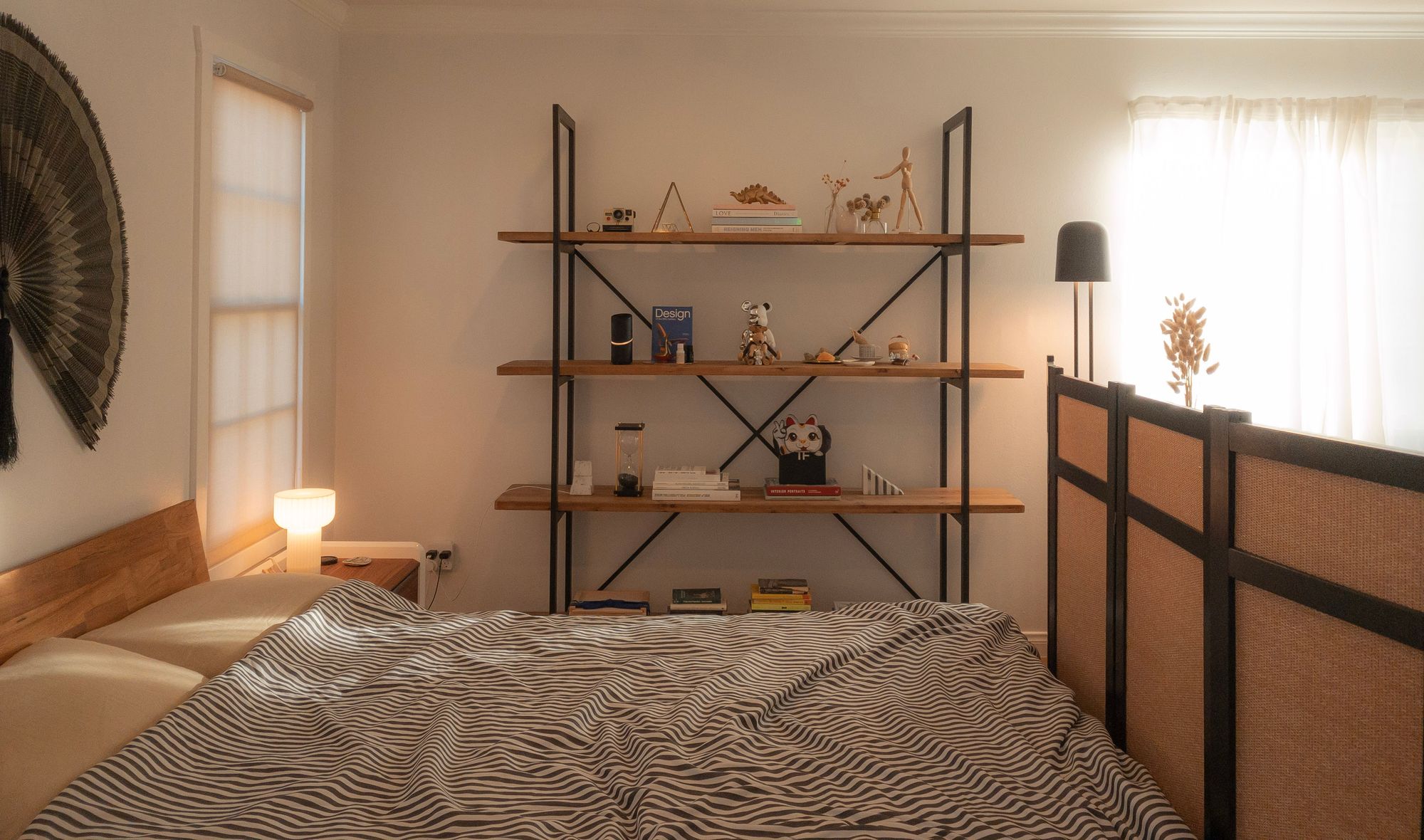
Q: Do you have any tips for those that are trying to figure out how to find their personal style and build their career?
A: This is something I would tell my younger self: don’t be so hard on yourself. Let your heart guide you, let your intuition flow freely and don’t feel the need to hold back so much. The journey is long and sometimes when we try to rush the process we may end up with something we aren’t happy with. Be mindful, give yourself some credit, and let it happen.

